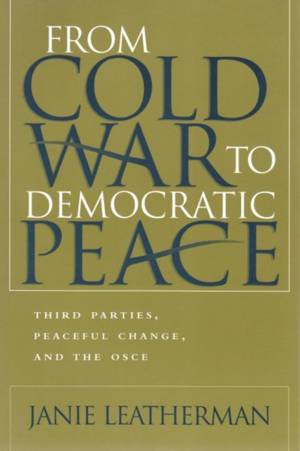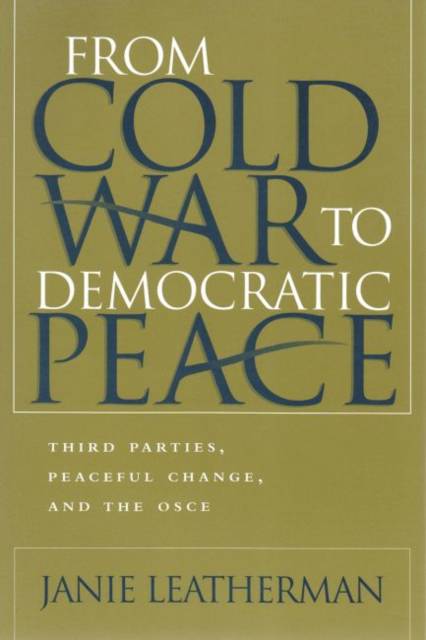
Bedankt voor het vertrouwen het afgelopen jaar! Om jou te bedanken bieden we GRATIS verzending (in België) aan op alles gedurende de hele maand januari.
- Afhalen na 1 uur in een winkel met voorraad
- In januari gratis thuislevering in België
- Ruim aanbod met 7 miljoen producten
Bedankt voor het vertrouwen het afgelopen jaar! Om jou te bedanken bieden we GRATIS verzending (in België) aan op alles gedurende de hele maand januari.
- Afhalen na 1 uur in een winkel met voorraad
- In januari gratis thuislevering in België
- Ruim aanbod met 7 miljoen producten
Zoeken
€ 84,95
+ 169 punten
Uitvoering
Omschrijving
On November 19, 1990, the participating states of the Conference on Security and Cooperation in Europe (CSCE) gathered in Paris to sign the Charter of Paris and celebrate an end to the Cold War. How did the thirty-five CSCE countries, which included the United States, Canada, and all of Western and Eastern Europe (except Albania), the Soviet Union, and the neutral and nonaligned states, escape the clutches of the Cold 'War without a violent confrontation, a devastating conventional war, or even a nuclear holocaust? Janie Leatherman argues that by forging an understanding of cooperative security and embracing the protection of human rights, the primacy of democratic government, and free market economies, the CSCE led the participating states from Cold War confrontation toward a democratic peace.
Specificaties
Betrokkenen
- Auteur(s):
- Uitgeverij:
Inhoud
- Aantal bladzijden:
- 304
- Taal:
- Engels
- Reeks:
Eigenschappen
- Productcode (EAN):
- 9780815630074
- Verschijningsdatum:
- 1/12/2003
- Uitvoering:
- Hardcover
- Formaat:
- Genaaid
- Afmetingen:
- 164 mm x 241 mm
- Gewicht:
- 589 g

Alleen bij Standaard Boekhandel
+ 169 punten op je klantenkaart van Standaard Boekhandel
Beoordelingen
We publiceren alleen reviews die voldoen aan de voorwaarden voor reviews. Bekijk onze voorwaarden voor reviews.









